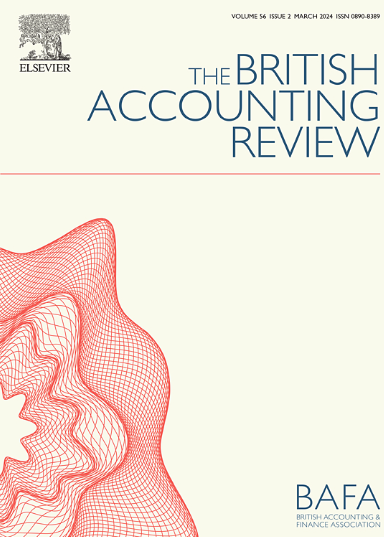Epidemic experience, analyst sentiment, and earnings forecasts: Evidence from SARS exposure
IF 9.4
3区 管理学
Q1 BUSINESS, FINANCE
引用次数: 0
Abstract
This study examines whether exposure to dangerous infectious diseases affects how analysts assess risks. We use the outbreaks of the severe acute respiratory syndrome (SARS) at analysts' previous office locations across China as a plausibly exogenous shock in the analysts' life experience. We show that compared to their less-affected counterparts, analysts in provinces with more SARS cases issue more optimistic forecasts for firms. This effect is stronger for affected analysts in provinces perceived as more salient during the SARS epidemic period. Mechanism tests show a high level of unexpected economic growth and positive media reports can motivate optimistic forecast bias induced by SARS exposure. Further heterogeneity tests indicate that our findings are particularly pronounced among busier analysts, those with less industry specialization, and female analysts. Overall, these findings suggest that exposure to the SARS epidemic influences the information intermediaries’ judgment.
疫情经历、分析师情绪和盈利预测:非典疫情证据
本研究探讨了接触危险传染病是否会影响分析师评估风险的方式。我们将分析师之前在中国各地的办公地点爆发的严重急性呼吸系统综合症(SARS)作为分析师生活经历中一个看似外生的冲击。我们的研究表明,与受影响较小的同行相比,SARS 病例较多省份的分析师会对公司做出更乐观的预测。在非典疫情流行期间,受影响省份的分析师认为非典疫情更突出,这种效应就更强。机制测试表明,高水平的意外经济增长和积极的媒体报道会激发由非典疫情引起的乐观预测偏差。进一步的异质性检验表明,我们的研究结果在较繁忙的分析师、行业专业化程度较低的分析师和女性分析师中尤为明显。总之,这些研究结果表明,非典疫情会影响信息中介的判断。
本文章由计算机程序翻译,如有差异,请以英文原文为准。
求助全文
约1分钟内获得全文
求助全文
来源期刊

British Accounting Review
BUSINESS, FINANCE-
CiteScore
8.60
自引率
3.90%
发文量
39
审稿时长
76 days
期刊介绍:
The British Accounting Review*is pleased to publish original scholarly papers across the whole spectrum of accounting and finance. The journal is eclectic and pluralistic and contributions are welcomed across a wide range of research methodologies (e.g. analytical, archival, experimental, survey and qualitative case methods) and topics (e.g. financial accounting, management accounting, finance and financial management, auditing, public sector accounting, social and environmental accounting; accounting education and accounting history), evidence from UK and non-UK sources are equally acceptable.
 求助内容:
求助内容: 应助结果提醒方式:
应助结果提醒方式:


